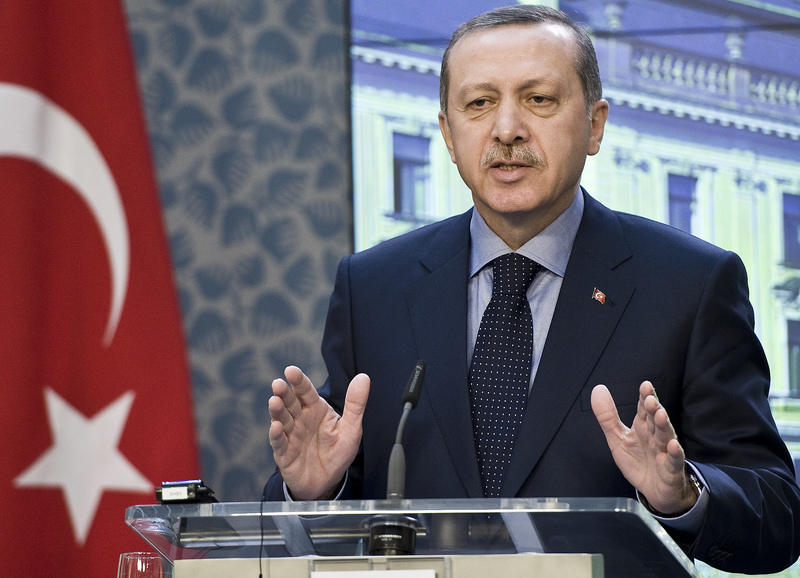21 Jun 2013 | Europe and Central Asia

Turkish PM Recep Tayyip Erdogan in Prague earlier this year
Germany has reportedly blocked Turkey’s next steps towards European Union membership yesterday, as unrest continues in the cities of Ankara and Istanbul.
The protests, which began on 28 May, have been met with force from Turkish Prime Minister Recep Tayyip Erdogan — and Germany has been critical of the crackdown on demonstrators. There have been 5,000 injuries as well as four deaths since the start of unrest.
Talks furthering Turkey’s case for membership were scheduled in its capital, Ankara, next week. Moving forward with the process would have required unanimous agreement from the European Union’s 27 member nations at a meeting in Brussels yesterday.
Diplomats representing Germany blocked the decision because of remaining “open questions.” According to an EU diplomat the protests “obviously had an impact on the decision.”
Turkey has fired back at Germany’s decision, warning that it would cool its relations with the European Union, and “draw a strong reaction.”
Sara Yasin is an Editorial Assistant at Index. She tweets from @missyasin
19 Apr 2012 | Europe and Central Asia, Index Index, minipost
A radical Muslim group released a video threatening a number of German journalists last week. The Salafist group named journalists from newspapers Frankfurter Rundschau and Tagesspiegel in the video uploaded to YouTube on Thursday (12 April). The recording showed photographs of the journalists, detailed private information and threatened to reveal more if the media continued to publish “lies” about Frankfurt Salafist group DawaFFM. The group refers to itself as “The True Religion”, it has been widely criticised by press and politicians for its aim to have a copy of the Koran in “every household in Germany, Austria and Switzerland”,
27 Jan 2012 | Comment, Europe and Central Asia, News and features
 The prohibition of Hitler’s infamous work is a symbolic measure that has lost all impact, says Daniella Peled
The prohibition of Hitler’s infamous work is a symbolic measure that has lost all impact, says Daniella Peled
(more…)
12 Sep 2011 | Index Index, minipost, News and features
Facebook has agreed to work with the German government on a code of conduct aimed at privacy protection. The code, agreed at a meeting on Wednesday between German Interior Minister Hans-Peter Friedrich and Facebook’s director of policy in Europe, Richard Allen, will cover issues such as media literacy and data transmission in accordance with German law. The agreement follows discussions around Facebook’s adherence to German data protection laws. Last month, Thilo Weichert, a data protection commissioner in Northern Germany, claimed Facebook’s “Like” button violated German data protection laws.


 The prohibition of Hitler’s infamous work is a symbolic measure that has lost all impact, says Daniella Peled
The prohibition of Hitler’s infamous work is a symbolic measure that has lost all impact, says Daniella Peled